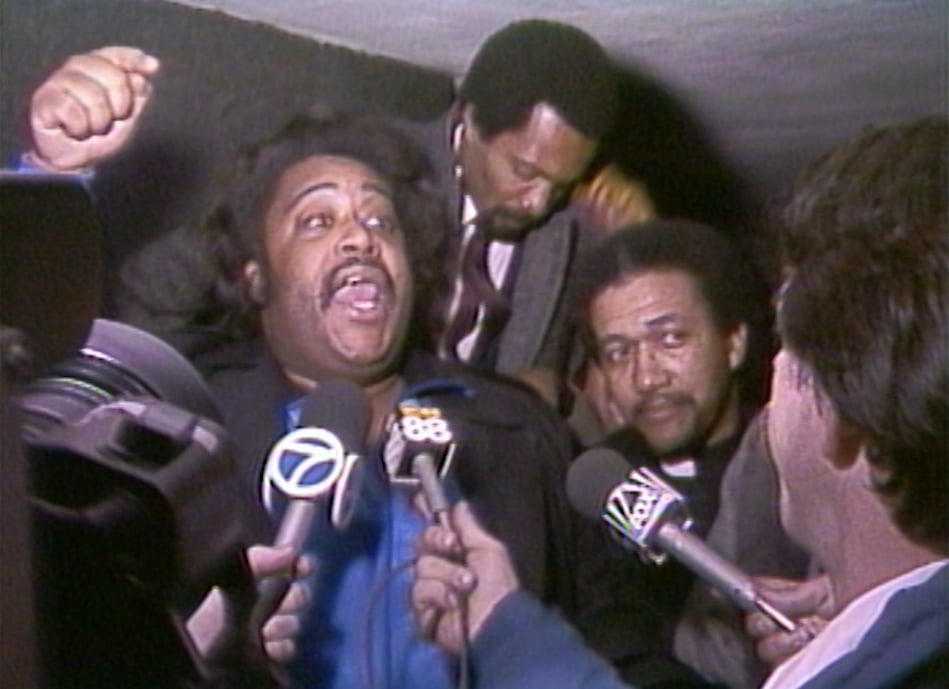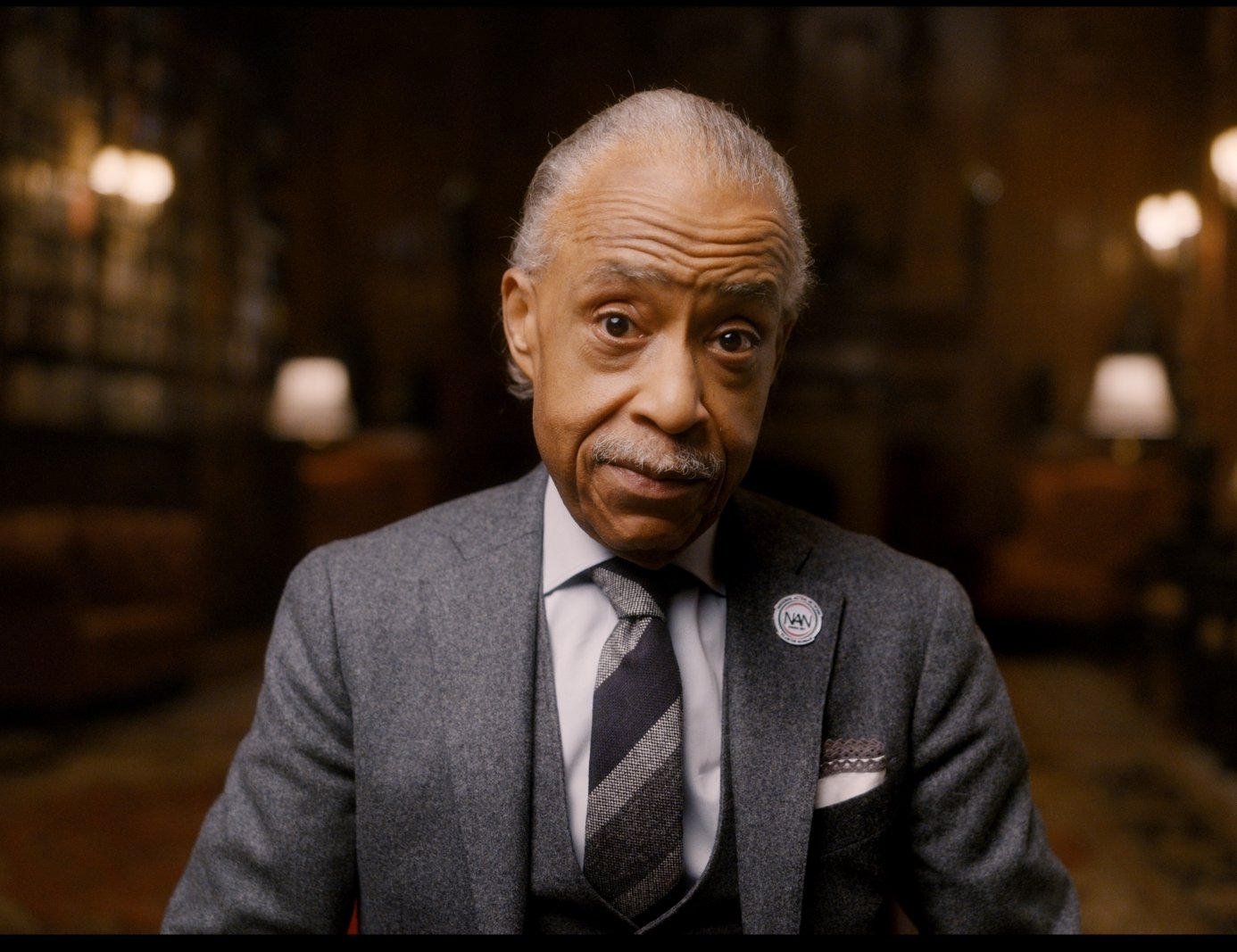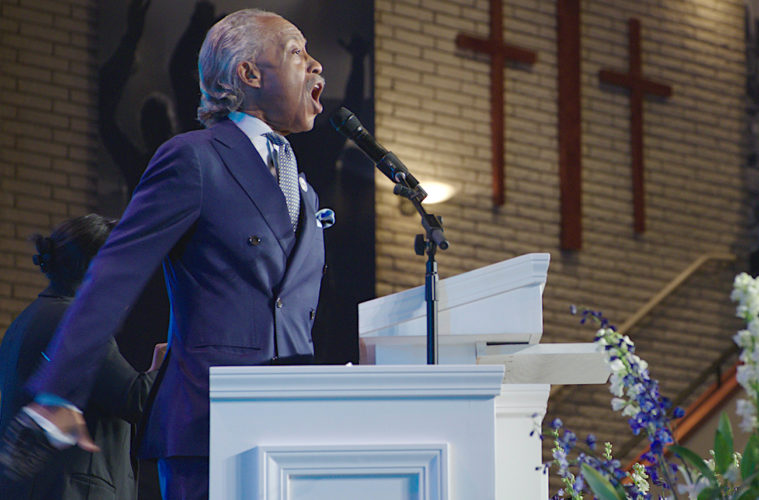Reverend Al Sharpton has been a prominent voice on the subject of racial discrimination since the early 1980s, but his brash and vociferous style wasn’t always embraced by the public or the media. In the new Greenwich Entertainment documentary, Loudmouth, co-produced by John Legend, the preacher and activist looks back at his work, his highs and lows, and even some of his missteps, to provide an enlightening history lesson that informs the fight for racial justice we still contend with today. We spoke with the civil rights icon about the film, his work and his inspirations.
LA WEEKLY: Absolutely loved Loudmouth and learned a lot.
REV. AL SHARPTON: Oh, thank you. Yeah, I think one of the things that is important to me, is that the country needs to understand that racism was not just a Southern dish. A lot of people that have seen the screenings have been absolutely shocked that things like this were going on in New York and other Northern metropolises. And it’s not even actors. This is the actual footage. And for people to not have any apprehension of standing in front of a camera, calling us the N word and throwing watermelon, it shows you a lot.
Honestly, watching it made me feel emotional. I think that it’s going to get that reaction from a lot of people. It’s so shameful but it’s important that we do see it. It happened and it’s what you were fighting against.
I want to start with some background about how this documentary came about for you and why you decided to participate.
Kedar Massenburg, who used to be the president of Motown Records, came to me with John Legend, and said they wanted to do a documentary about how the media dealt with race, with me as a central figure in the 80’s all the way til now. They felt that I represented the bridging in terms of time. They said you will have no editorial control. You’d risk whichever way we want to do it and we’re going to use a white director because we want to do it through the lens of somebody white. I thought about it for a couple of days, and I came back, I said I’ll take the risk if you’re going to do the story. And I’ll do the interview. So I did it based on my faith and integrity of John Legend and Massenberg.
What is your take now that you’ve seen the completed product?
I think they’ve told the story. I think that obviously there are more things that I could have included but it would be a five hour documentary. I’m impressed with it. They packaged it well. Also, they gave it balance showing why I did what I did, whether you agree or not, and what I was thinking and what we were facing. They got footage that was amazing to me. I never saw that footage of my mother until I went to the screening. Oh, and the footage of James Brown and I in his office… that moment, I don’t know where they got that from.
You were so young. I actually met you like almost 30 years ago at an event that Rick Rubin threw at Hollywood Forever Cemetery for Def American Records. It’s interesting, because you have such a connection to the music world. Can you speak to that?
I think in order to have any serious attempt at social change, you must impact the culture. By me being blessed to have a father-son relationshp with James Brown, who ended up being the patron saint of hip hop, it gave me like an instant credibility with hip hop artists. I remember I was at the Essence Music Festival about three or four years ago and a security guard said Snoop Dogg wants to see you. I said alright. So we went to Snoop Dogg’s dressing room the in New Orleans Superdome. He said, ‘You know, I want to tell you something I never told you rev.’ I said, ‘What’s that?’ He said, ‘I went to see James Brown one night, and you were not there. But James Brown said to me, if you ever get jammed up, call Reverend Sharpton, trust me.’
I think having that kind of James Brown sanction –and then Michael… I preached at both of their funerals– it gives you access that you don’t have normally. Because you had to remember that I was born and raised in Brooklyn, New York. Most of the civil rights leaders from generations before me we’re in the South.
So Dr. King in Atlanta or Montgomery could send out a press release, and have a church rally. And that would mobilize the town. Reverend Jackson, who was one of my mentors, born in Greenville, South Carolina, same thing, church rally precedent. I was born in New York, where you were competing with the Broadway lights, and Wall Street, World Trade Center. You had to be loud and theatrical to get attention in New York. So a lot of what I did was my strategy and my basis, I learned from Reverend Jones and Jesse Jackson, but my styling– I’m growing up within the same three years of Russell Simmons age, Spike Lee’s age. And we all out of Brooklyn and Queens and knew each other, so we were styled and modeled in a way that fit the culture of that time.

(Courtesy Greenwich Entertainment)
I just interviewed Snoop and my chat with Spike Lee was one of the most inspiring I’ve ever had. You’re right, representing the culture is important. You got our attention, bottom line. That’s what comes through. The film’s name, Loudmouth, references that. You are owning that you had to speak loud, to bring attention to these problems that were there, even if it made some people dislike you. Looking through your whole body of work, the doc did a really good job of showing everything and kind of flashing forward and back. Even owning some mistakes. Watching it, did you wish you’d done some things differently?
I think I would have probably been more careful with language, which I talked about Mrs. King. I’d have been just as loud and just as theatrical, though. I literally grew up doing this. I mean I was 14 years old speaking about police brutality, and I’d been preaching before that. So I matured– you’re certainly gonna do some things at 35 that you wouldn’t have done at 15. And you gonna do things at 60 you wouldn’t have done at 35. So I don’t regret growing up in public. And I think I would have been more prepared for the critics by digging in with more research. But other than that, I would do everything I did.
Coretta Scott King was really part of your evolution in the way that you did things, especially as you got older. Your approach evolved and grew.
And more than even that, she said ‘You can be brash Al, without using that language,’ like we used the N word and the C word… She said, you don’t need that. ‘You can be dramatic without being that, because that’s offensive to some people.’ And I said, ‘Okay, I understand.’ And I think that she was not against my being aggressive in terms of sittings. Because her husband did that. She was just saying, ‘Don’t do it, if you can’t be inclusive. ‘
The doc shows how history keeps repeating itself. How can we find hope? At the end, you did give us some, reminding that even though we take steps back, we have taken a lot of steps forward. Do you still have hope?
With all of the nights in jail, getting stabbed and all of that, when I started, we couldn’t have dreamed of having a Black president or a Black vice president. I’ve seen too many things happen, for me not to have hope. And I understand that defeats come with victories, but you’ve just got to keep fighting.
That scene in 1981, where I’m sitting on stage with Muhammad Ali and James Brown doing a TV show. Who gets the two icons of the 20th century to give them their endorsement, you know, going on that show, to say that I’m going to be a leader in the 20th century? And both of them were beaten, and came back.
I’m glad you’re still fighting. One of the things that kind of becomes clear is that whenever we make progress, people become uncomfortable with the change and they fight it. Like with Barack Obama becoming the President, then we had Trump.
There’s always gonna be a backlash. And it’s sad. It’s maddening. But if you understand the patterns of history you prepare yourself for it.

(Courtesy Greenwich Entertainment)
I watch you on MSNBC a lot. You provide some really good insight and context for what we are dealing with now. But how can we still attain true equality when we are dealing with Donald Trump and people that still follow him? They are holding on stronger than ever in some ways.
They are, but we beat em. Biden beat Trump, and we just have to continue to fight and beat them. People need to see this documentary to understand Trump. Now what I mean by that is, in Queens when they were throwing the watermelons at us and calling us the N word, that is the mouth from where Trump was born and raised. Trump understood how to target into that racism because he grew up on that side of New York. And if you see that, Trump was already fully grown. He’s 19 years older than me. So that’s where Trump got it from. When Mayor Koch was calling us poverty pimps– that is the kind of politics that we knew in New York, that he nationalized and that made him the President of the United States. Basically if you wanna understand Donald Trump, you got to see Loudmouth.
It’s pretty clear the race problems have always been there, but many didn’t want to see. That’s why years later, George Floyd was so important because technology captured it on film. The world seeing that, it woke people up. I hate that the word woke has become negative to some because I think it’s a perfect word to describe how a lot of people really came to understand what was always there.
It also shows that a lot of us have been in this for a while. Because I can’t tell you when I started getting access to the White House with Barack there, and got my talk show on MSNBC, some conservatives said well, he ain’t gonna march no more, he aint gonna do this no more now that he got access to White House. But I did Trayvon Martin, Ferguson, all of that, while Barack was President. I led the marches while I was at MSNBC, because I believe in this. I don’t have to do that anymore. But I do have to do it for me. If it was just for the attention, I’m on TV and radio, I get attention every day. I do it because it’s a strategy that you got to be able to live pain and put it out there. So people understand what we’re fighting.
Loudmouth points out that the media contributed to kind of suppressing what we saw and making you look bad. You work in the media now. So it shows that we have progressed. We still have Fox News, but there are different options and most media really tries to show the truth. I’m in the media and I know I do.
I think that’s a good point. Because in those days, everybody was Fox News. Now you have Fox News, but you have alternatives. It was OK for media to cover Dr. King in the south but I was fighting them right here and their cousins in Howard Beach, Queens. For me to confront them, they couldn’t give a good portrayal of me, because I was taking the veil off. This ain’t somebody down South. This is you right here. And I had to survive all of that. I was stabbed, I was prosecuted. I went to jail. One time, 90 days. I paid dues. But I was determined I was going to hold out and I did.
Your journey is amazing and it really makes an engrossing documentary. So with the pendulum swinging back and forth, how do we combat the negative forces in a way that’s effective. Social media and cancel culture are not helping sometimes, and then there’s figures like Kanye. Even Black Lives Matter as an organization has had some issues. How do we combat the problems and elevate the message?
I think that we’ve got to be able to be honest if they’re mistakes like Kanye. We’ve got to outrun them. They are always going to attack. And I think that’s why I tell all the young activists in the National Action Network, you’ve got to not give them anything to deal with because they’re gonna come after you. If you feel that you going to fight them and they’re not gonna fight back, then you’re in the wrong business. I know every time I walk out my door, that they’re going to make their attempts to stop what we’re doing because you are talking about power.
There was one thing I was told by older activists when I was very young that I never forgot, and I live by this: He said, ‘being an activist is like playing football. Half the stadium’s gonna cheer you, half the stadium will jeer you.’ He said, ‘Don’t get too intoxicated with the cheers. And don’t get depressed with the jeers. Just keep running for the goal line, because they wouldn’t be cheering or jeering if you didn’t have the ball. Just remember your job is to get the ball across to the goal line.’
Editor’s note: The disclaimer below refers to advertising posts and does not apply to this or any other editorial stories. LA Weekly editorial does not and will not sell content.
Advertising disclosure: We may receive compensation for some of the links in our stories. Thank you for supporting LA Weekly and our advertisers.

